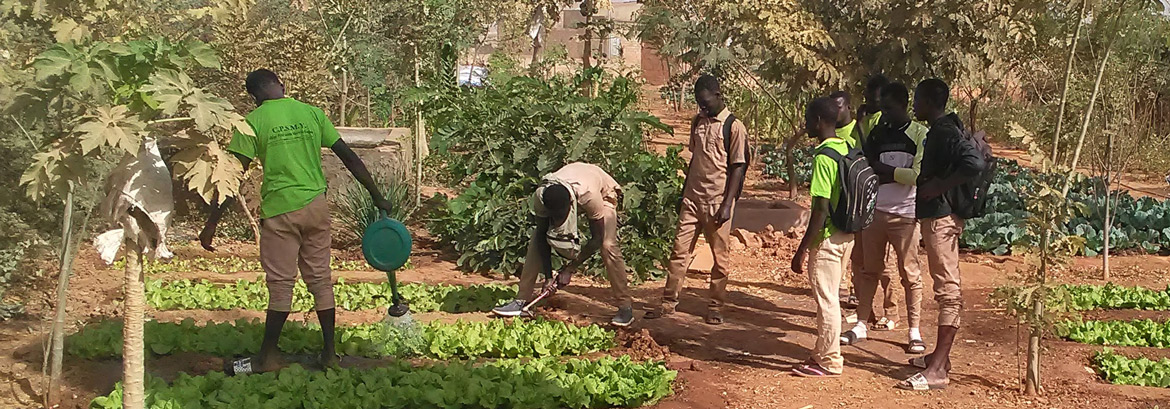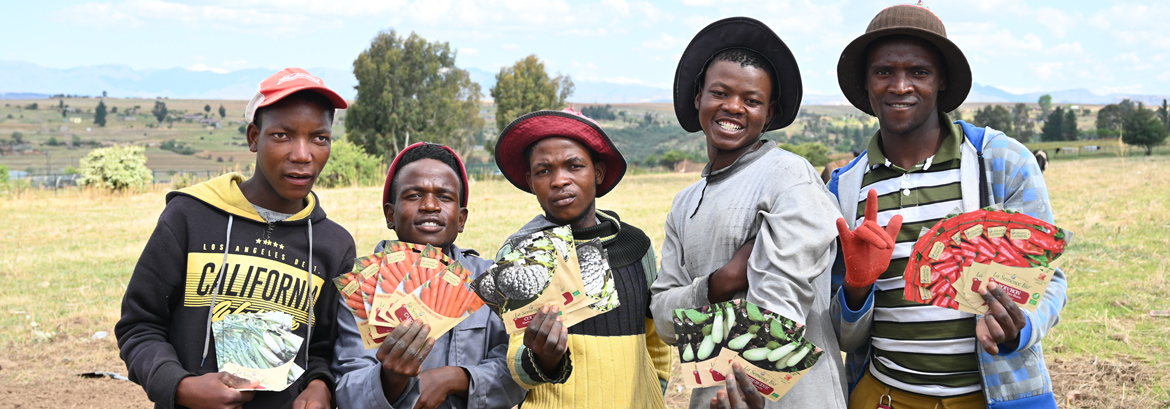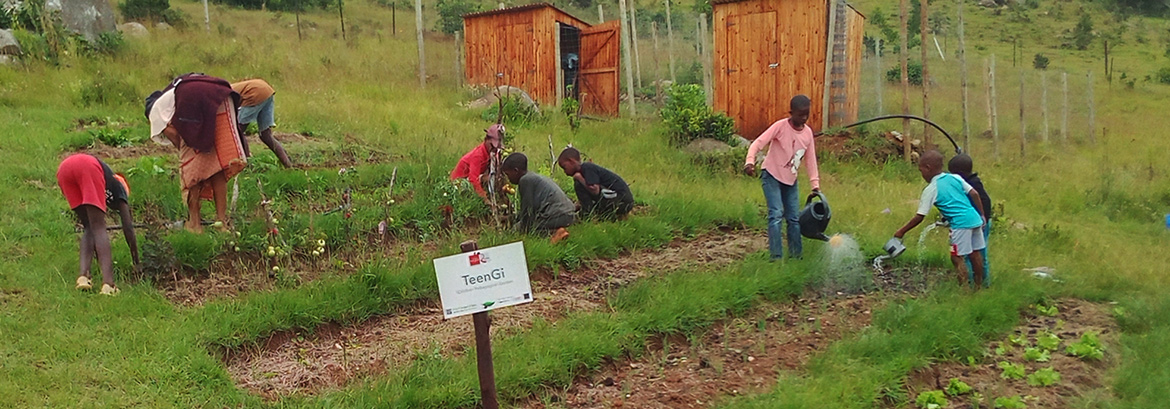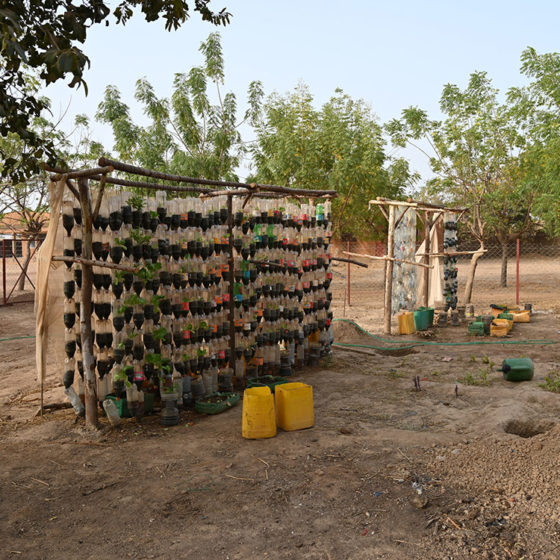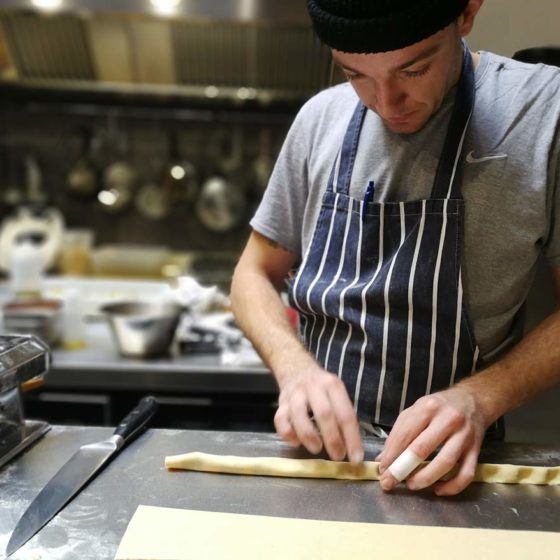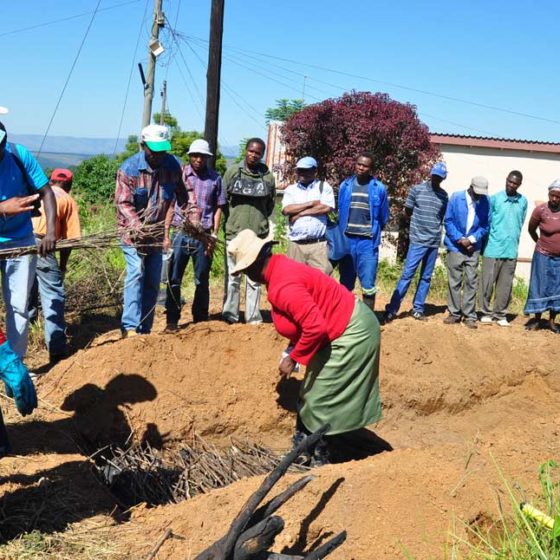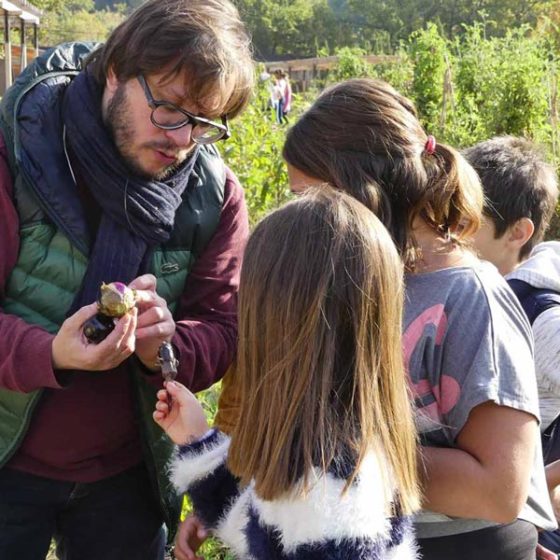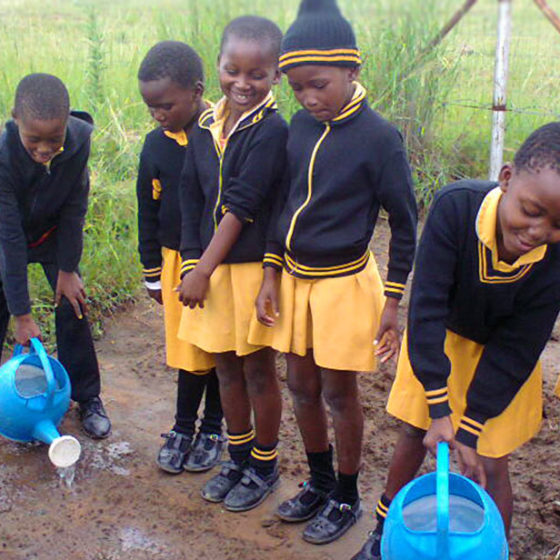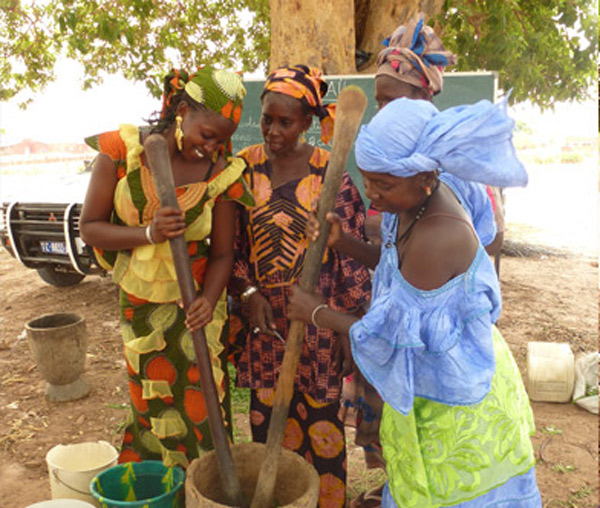
The Ivory Foundation encourages the development of educational and experimental gardens designed to teach children about the consumption and production of a variety of fruit and vegetables. These gardens are adapted to local socio-economic and ecological contexts, and promote agricultural practices that respect the land and people, such as agroecology and agroforestry. Depending on the context, above-ground structures can also be developed, particularly for agriculture in urban or peri-urban environments (in the courtyards of homes in Burkina Faso or small plots in townships in South Africa, for example).
In 2017, the agroforestry garden at Sainte Marie’s school in Yagma, Burkina Faso was created with the support of APAF. The success of this garden, which has created a “real oasis in the middle of the desert”, with trees over 10m high and growing beds filled with vegetables, has become an example for local schools, which now come to visit.
Click here to discover this garden
Since 2013, The Ivory Foundation has been supporting the Half Way House in Roosboom, which takes in vulnerable children from this disadvantaged township in Kwazulu Natal, South Africa, every day of the week.
Vegetables from the Half Way House garden are used to supply the canteen for the distribution of meals to the township’s orphans.
Click here to discover this garden
Since 2017, The Ivory Foundation has been supporting deaf and hearing-impaired young people at St Paul’s School in the Leribe region of Lesotho, where an educational micro-farm has been developed. This project has enabled them to learn various techniques related to farm management, such as agro-ecology, cereal production and animal husbandry. In 2021, a new garden was set up at St Paul’s school for young deaf and hard-of-hearing children to teach them how to care for a vegetable garden, the Palesa garden. The garden is divided into four sections, each of which is available to a class. Every week, schoolchildren work on their respective plots with their teachers. Educational tools using sign language have also been developed.
Click here to discover this garden
In the Garden of Skills, a plot of around twenty plots is reserved for the children of Malanti. They come in groups after school and on Saturdays to look after the planting in their garden. By raising children’s awareness, the aim is also to reach out to parents and encourage them to develop a vegetable garden on their own land..
Click here to discover this garden:

